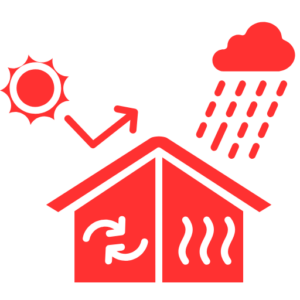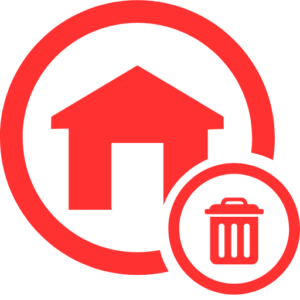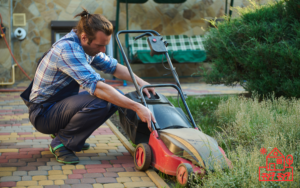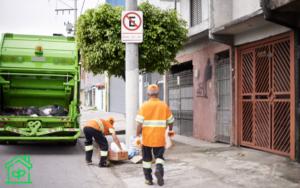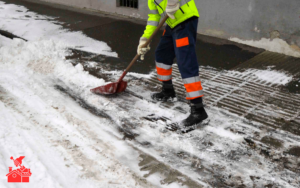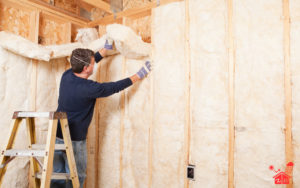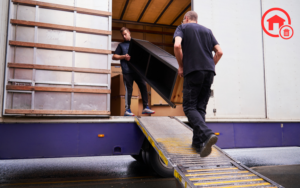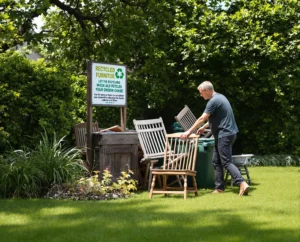INTRO
Welcome! I’m excited to share essential recycling tips that can transform my home into a more sustainable living space. With commitment and small changes, I can contribute to a healthier planet.
Understanding Recycling
To begin my recycling journey, I must understand what recycling truly means and its impact on our environment.
The Recycling Process
The journey of recycled materials starts from my curb to the processing facility. Here’s how it works.
Common Recyclable Materials
I’ll discover which materials I can recycle right from home, including plastics, glass, and metals.
Tips for Effective Recycling
Here are actionable steps I can take to streamline my recycling efforts.
Clean and Sort
It’s important for me to keep recyclables clean and sorted. This makes processing easier and more efficient.
Know My Local Guidelines
Each community may have different recycling rules. I need to research and follow my local recycling guidelines.
Reducing Waste at Home
Beyond recycling, there are also ways to minimize waste generation in my household.
Incorporating Composting
Composting organic waste is an effective strategy to reduce landfill contributions. Here’s how I can do it.
Choosing Biodegradable Packaging
Switching to biodegradable products can significantly reduce my environmental footprint.
Upcycling Ideas
Instead of tossing items away, I can repurpose them creatively for new uses.
Upcycling Household Items
I can turn ordinary waste into creative DIY projects. Here are some fun ideas!
Eco-Friendly Products
Using eco-friendly products can enhance my sustainability efforts while ensuring health safety for my family.
Energy Efficiency in My Home
Incorporating energy-saving appliances is crucial in my sustainability journey.
Sustainable Living Practices
I’ll explore daily practices I can integrate for a more sustainable lifestyle.
DIY vs. Professional Services
While DIY is tempting, I must weigh the risks versus the benefits of seeking professional recycling services.
Testimonials
“I never knew recycling could be this easy! The tips helped me cut down waste significantly.” — Sarah R., Newark, NJ
“My efforts in recycling changed after using these simple methods. I feel good knowing I’m helping the planet.” — Mark T., Newark, NJ
“I love how manageable these recycling tips are. It’s made a difference for our family!” — Lisa M., Newark, NJ
Did You Know?
Did you know that recycling just 10 plastic bottles can save enough energy to power a laptop for over 25 hours?
TL;DR Summary
- Learn effective home recycling tips.
- Focus on reducing waste sustainably.
- Explore upcycling and its benefits.
- Consider professional services for complex recycling needs.
- Implement energy-efficient appliances.
FAQs
What materials can I recycle at home?
Most common materials include plastics, glass, metals, and paper. Local guidelines may detail specific types and how to prepare them for recycling.How can composting help my household sustainability efforts?
Composting can reduce organic waste in landfills, enrich soil, and provide a sustainable method of managing kitchen scraps while recycling nutrients back to the earth.What are some creative upcycling ideas I can try?
I can turn glass jars into storage containers or old t-shirts into reusable shopping bags, which help minimize waste creatively.Why should I consider eco-friendly products?
Choosing eco-friendly products enhances my household’s sustainability and often supports safer consumer choices for my family’s health.How do I find local recycling programs?
I can check my local government’s website or community boards to learn about nearby recycling programs and their specific guidelines.
STEP #3: Write the Full Article
Understanding Recycling
To begin my recycling journey, I must understand what recycling truly means and its impact on our environment. By reprocessing materials, I can help reduce waste in landfills and conserve valuable resources.
The Recycling Process
The journey of recycled materials starts from my curb to the processing facility. Here’s how it works. Once I place my recyclables in bins, they are collected and transported to recycling facilities where they’re sorted, cleaned, and processed into raw materials for manufacturing new products.
Common Recyclable Materials
I’ll discover which materials I can recycle right from home, including plastics, glass, and metals. Common items range from soda cans and water bottles to newspapers and cardboard boxes. Understanding what I can recycle is the first step toward being proactive.
Tips for Effective Recycling
Here are actionable steps I can take to streamline my recycling efforts.
Clean and Sort
It’s important for me to keep recyclables clean and sorted. Contaminated materials can spoil entire batches of recycling, making it crucial to rinse out plastic containers or remove food residues from cans. Proper sorting into designated bins helps facilitate the recycling process further down the line.
Know My Local Guidelines
Each community may have different recycling rules. I need to research and follow my local recycling guidelines. This knowledge ensures I’m recycling correctly and taking advantage of all available services.
Reducing Waste at Home
Beyond recycling, there are also ways to minimize waste generation in my household.
Incorporating Composting
Composting organic waste is an effective strategy to reduce landfill contributions. Here’s how I can do it. By collecting my kitchen scraps—like fruit peels and vegetable trimmings—and setting up a compost bin, I can create nutrient-rich soil for my garden while diverting waste from the trash.
Choosing Biodegradable Packaging
Switching to biodegradable products can significantly reduce my environmental footprint. When possible, I’ll purchase items packaged in biodegradable materials that break down naturally, such as those made from plant fibers.
Upcycling Ideas
Instead of tossing items away, I can repurpose them creatively for new uses.
Upcycling Household Items
I can turn ordinary waste into creative DIY projects. Here are some fun ideas! Empty wine bottles can become stylish vases, while old wooden pallets can be transformed into unique furniture pieces.
Eco-Friendly Products
Using eco-friendly products can enhance my sustainability efforts while ensuring health safety for my family. I’ll look for items made from natural materials that are biodegradable or reusable, decreasing my reliance on single-use plastics.
Energy Efficiency in My Home
Incorporating energy-saving appliances is crucial in my sustainability journey. Energy-efficient appliances use less electricity, reducing both my utility bills and environmental impact.
Sustainable Living Practices
I’ll explore daily practices I can integrate for a more sustainable lifestyle. Simple acts like turning off lights when leaving a room, using reusable bags, and being mindful of water usage can greatly impact over time.
DIY vs. Professional Services
While DIY is tempting, I must weigh the risks versus the benefits of seeking professional recycling services. Professionals can ensure that materials are disposed of correctly and can handle items no longer permitted in curbside recycling.
Testimonials
“I never knew recycling could be this easy! The tips helped me cut down waste significantly.” — Sarah R., Newark, NJ
“My efforts in recycling changed after using these simple methods. I feel good knowing I’m helping the planet.” — Mark T., Newark, NJ
“I love how manageable these recycling tips are. It’s made a difference for our family!” — Lisa M., Newark, NJ
Did You Know?
Did you know that recycling just 10 plastic bottles can save enough energy to power a laptop for over 25 hours?
TL;DR Summary
- Learn effective home recycling tips.
- Focus on reducing waste sustainably.
- Explore upcycling and its benefits.
- Consider professional services for complex recycling needs.
- Implement energy-efficient appliances.


















